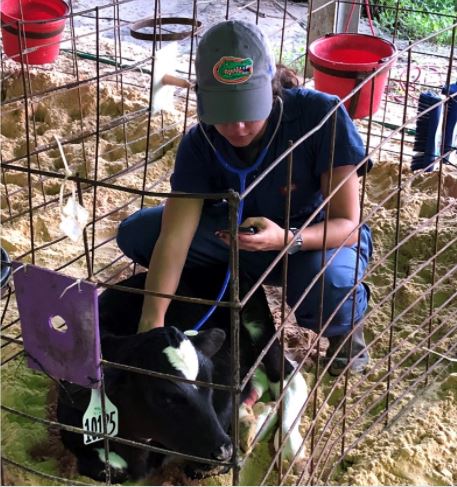



New study: Heat stress in dairy cows damages health of calves
Researchers reporting in JDS CommunicationsTM found that heat stress of pregnant dairy cows reduces fetal growth and influences performance and immune development of the offspringAs scientists continue to explore the wide-ranging effects of heat stress on the health of dairy cattle, a new study by researchers from the University of Florida, published in the September issue of JDS Communications, published by Elsevier, adds to the growing understanding of the negative influences of heat stress—not just throughout the lifespan, but across generations.
With the goals of evaluating the effects of in utero heat stress on overall fetal and organ growth, particularly organs associated with immune function, and examining the cellular mechanism of altered passive immunity in neonatal bull calves after maternal heat stress, the team exposed pregnant Holstein cows to the extreme heat of the Florida summer and gathered data about the resulting offspring, comparing these against data on calves born to cows provided with cooling measures during late pregnancy. The team found that calves born to heat-stressed cows had lower birth weights, lower weights of organs, including the heart, liver, kidneys, thymus and spleen, and higher rates of cell death in the intestine.
The lower birth weights observed by the researchers suggest reduced placental function and earlier delivery, with less progressed fetal development. The lower weights of the heart, liver and kidneys among calves born to heat-stressed dams also suggest compromised placental and fetal development.
Senior author Geoffrey E. Dahl, PhD, of the University of Florida, Gainesville, FL, USA, explains that “Calves, like all young animals, are prone to elevated rates of mortality and morbidity in the neonatal period, and preterm birth may further exacerbate that problem. Early-life losses may result from organ immaturity and dysfunction, notably of the gastrointestinal tract and the immune system.”
The team suggests that reduced weights of the thymus and spleen may be associated with slowed fetal growth and compromised immune function, as these organs play important roles in the development of a robust immune system. The higher rate of intestinal cell death among calves born to heat-stressed cows suggests that these calves may have a reduced ability to absorb immune factors from colostrum, essential to the transfer of maternal immunity to the immature and vulnerable calf, in the critical first hours after birth. “Passive uptake of immunoglobulins from colostrum is the only mechanism of immunoprotection in the bovine,” Dr. Dahl points out.

University of Florida researchers studied the effects of heat stress in dairy cows from mothers to calves (Credit: Jimena Laporta).
The authors speculate that decreased nutrient uptake and reduced immune function following gestational heat stress may lead to reduced health and growth of the calf in the long term. Dr. Dahl notes that, “Acceleration of gut closure appears to occur even before birth and before colostrum consumption. Thus, it may be challenging to reverse after birth, so management efforts should focus on cooling pregnant cows during late gestation.”
As the dairy industry continuously strives to improve animal welfare and environmental and financial sustainability, such research is of greater importance than ever.


